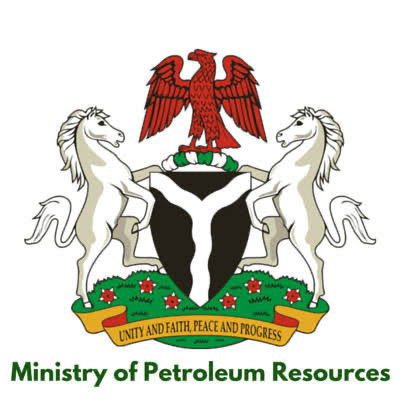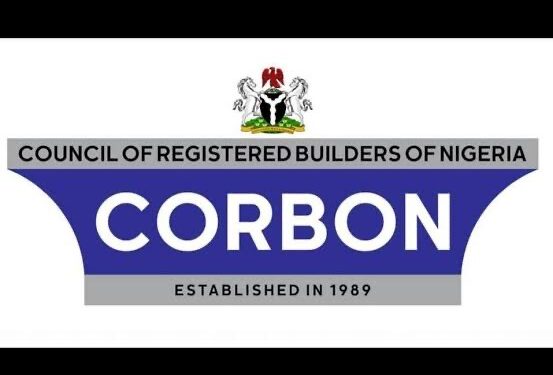The Ministry of Petroleum Resources has officially inaugurated a technical working group aimed at enhancing gas reticulation practices in Nigeria’s building industry, marking a crucial step in modernizing energy distribution across the country.
On Wednesday, Nicholas Ella, the ministry’s permanent secretary, led the inauguration of this collaboration between the National Gas Expansion Programme (NGEP) and the Council of Registered Builders of Nigeria (CORBON).
This initiative highlights the Nigerian government’s commitment to improving energy infrastructure, particularly in the areas of Liquefied Petroleum Gas (LPG), Pipeline Natural Gas (PNG), and Bio-Gas distribution.
Gas reticulation refers to the creation of an interconnected network of pipes or tubes that are designed to transport gas and other utilities to buildings, homes, and industrial sites.

This method is increasingly becoming a staple in developed countries, as it enhances urban efficiency and contributes to the creation of energy-smart cities.
Ella underscored the importance of establishing such infrastructure, stating that modern urban development relies heavily on the presence of efficient and well-maintained utility distribution systems.
“Most modern cities in developed countries have evolved to energy-smart cities where energy, specifically gas and other utilities, are piped to districts and estates,” said Ella.
He emphasized that for Nigeria to move forward, it must adopt similar energy-efficient methods, and the new working group is essential for making that a reality.
Ella also pointed out the key role of the National Building Code in this process, which provides the guidelines for the pre-design, design, construction, and post-construction stages of buildings.
The technical working group (TWG) has been tasked with the critical role of designing a comprehensive policy aimed at implementing best practices for gas reticulation across the Nigerian building sector.
According to the permanent secretary, the group will focus on using Liquefied Petroleum Gas (LPG), Pipeline Natural Gas (PNG), and Bio-Gas to establish safe and efficient gas distribution systems throughout Nigeria.
One of the major advantages of reticulated gas systems, as noted by Ella, is that they provide households and businesses with a metered gas supply, similar to the systems already in place for water and electricity.

This approach eliminates the inconvenience of manual gas refills and enhances safety by using underground pipelines equipped with advanced safety features.
“The TWG is tasked with designing a comprehensive policy to implement best practices for gas reticulation using LPG, PNG, and Bio-Gas across Nigeria’s building sector,” Ella explained.
The working group’s responsibilities will also include reviewing the current National Building Code to ensure it reflects modern gas distribution standards, examining global best practices in gas reticulation systems, and proposing high-quality standards for the materials used in gas installations.
Ella stressed the need for strict safety protocols and guidelines to ensure the safe and efficient use of gas in Nigeria’s construction industry.
The permanent secretary also urged the group to prioritize environmental sustainability in their recommendations, emphasizing the importance of developing gas systems that are not only safe and efficient but also environmentally friendly.
He revealed that the technical working group is expected to submit its comprehensive report by November 15, which will include detailed plans for moving forward with the gas reticulation initiative.
Samson Opaliwah, the chairman of CORBON, expressed the council’s commitment to collaborating closely with the working group to ensure the successful and safe adoption of gas infrastructure in residential and commercial buildings throughout Nigeria.
“The gas infrastructure will be safe, sustainable, and world-class. Our collective efforts will yield clear, standardized guidelines for safe and effective gas systems in buildings, matched with a skilled workforce to meet growing demands in Nigeria,” Opaliwah said.
He further emphasized that the introduction of this infrastructure will play a vital role in meeting the growing energy needs of the nation, particularly as the population and demand for modern housing continue to rise.
The development of gas reticulation systems will not only provide a more reliable and convenient energy source but will also contribute to the overall safety and environmental sustainability of Nigerian cities.
This collaboration between the Ministry of Petroleum Resources, NGEP, and CORBON is seen as a strategic move to align Nigeria’s building industry with global best practices, particularly as the country seeks to transition to more sustainable energy systems.
By investing in gas reticulation and establishing energy-smart cities, Nigeria is positioning itself to tackle its energy challenges head-on, while ensuring that its building practices are in line with international standards.
As the technical working group moves forward, it is expected to provide a framework that will guide the safe and effective distribution of gas in buildings across Nigeria, while also addressing the growing demand for clean energy solutions.
Through this initiative, Nigeria hopes to create a model for sustainable urban development that can serve as a blueprint for other African nations.

































